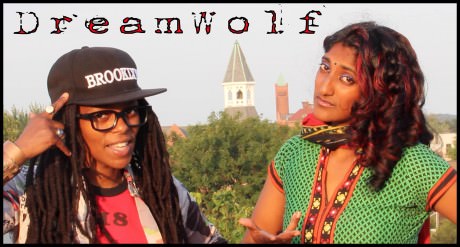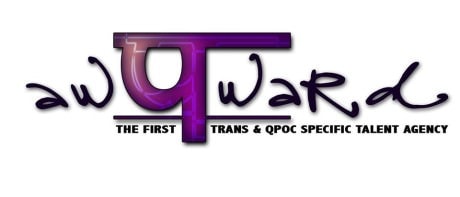Who gets to say what in the theater has become an increasingly pressing question. Of course the question has been pressing for a long time; it’s just now getting paid significant attention by folks whose voices have not been particularly marginalized. Case in point: DC’s unprecedented and high-profile Women’s Voices Theatre Festival. If you include WVTF’s under-appreciated predecessor the DC Black Theatre Festival, and if you add its even less recognized forerunner the DC Queer Theatre Festival, a telling picture emerges. If you step back and ponder what these combined festivals portend, the DC theater landscape appears to be a very good place right now to welcome a whole chorus of voices that are not presumptively privileged—meaning folks who are not straight, not white, and/or not cis-male.
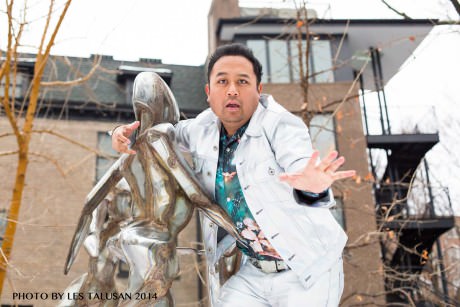
So it was the other evening that I dropped in on an event called an awQward noise. It promised “an evening of Spoken Word by Trans Queer People of Color Artists” (the acronym for which is TQPOC). And it turned out to be a thoroughly enjoyable and enlightening experience.
From one point of view, spoken word is a performance art form unto itself, and a locally popular one at that. From another perspective—in terms of touchstones of dramatic art such as character, story, linguistic distinction, audience interaction and engagement—spoken word can be viewed as an important tributary to the coursing flow of major work on stage. Spoken word venues are where you can go to hear who’s saying what afar off stage before those voices get to belong downstage center along with everyone else’s.
Certainly that has begun to happen for the authorial voices of some who have been traditionally marginalized, as DC’s vibrant trifecta of theater festivals bears testimony. But for TQPOC? Not really. Or rather: Not yet.
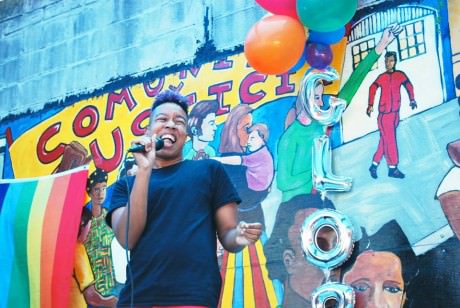
awQward is the cheeky name of a talent agency that represents a roster of up-and-coming TQPOC artists. awQward was founded in October 2014 by J Mase III.
In support of its goal “to uplift the creativity, genius and expertise of the TQPOC community,” awQward organized “awQward Camp” Saturday and Sunday, August 29 and 30. Workshops offered trainings in writing, performance, movement, humor, and intersectional narratives—storytelling about what it is to live inside multiple zones of prejudice simultaneously. Many of those who performed Sunday evening August 30th in an awQward noise had been awQward Camp teaching artists that afternoon.
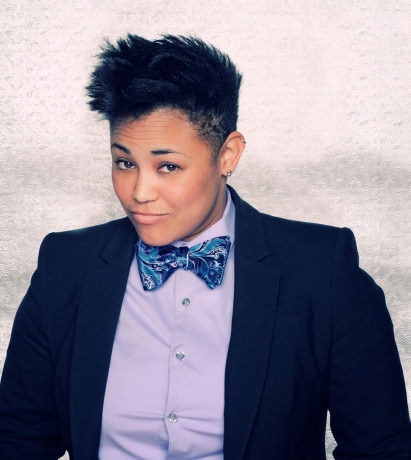
Hosted by J. Mase III, the program began with Chelsea Shorte, a talented comic who got the crowd laughing right off the bat with a hilariously irreverent story about…reparations.
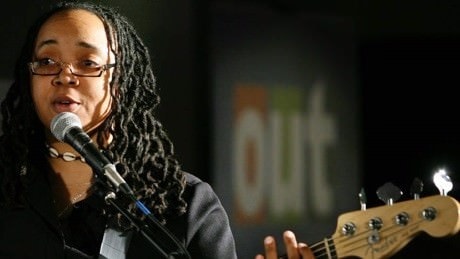
j.scales, whose one-woman play mostly the VOICE: a black lesbian journey I admired when I reviewed it in the recent Fringe Festival, read from her fine poetry.
Then Regie Cabico—DC poetry, stand-up, and theater maestro and the guiding light of the night—performed a funny-touching monolog about wanting to grow up to be a big star.
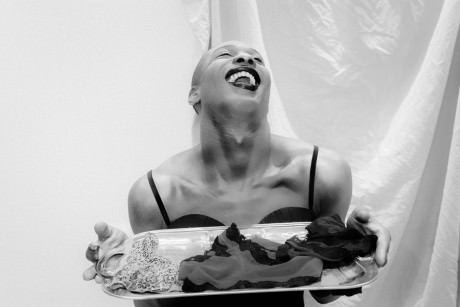
Next Dane Figueroa Edidi, whose play Absalom will be read in Theater Alliance’s Hothouse Series this October, performed her dramatic “Ode to Baltimore,” which became a rousing manifesto in verse and song. Then Regie Cabico, the guiding light of the night, performed a funny-touching monolog about wanting to grow up to be a big star.
For me the most impressive spoken word performance of the program was J. Mase’s delivery of a poem of his that made vivid his experience of being both derided for not appearing like a real-enough young man and at the same time being targeted for being a young man who is black. The poem was called “Bulletproof Boy,” an eloquent metaphor for the safety that as someone “black/trans/queer” he does not have.
Yalini Dream and Jendog Wolf, who are “partners in art and love” and call themselves DreamWolf, closed the program with an intense multicharacter narrative in the form of a “hip hop poetry dance collision” about a mother’s struggle to accept her daughter’s marriage to a woman. An especially moving image was of the two women, one a butterfly of the day and the other a firefly of the night, joining together in love.
The evening made me want to hear these voices more—and see more of their lives depicted truthfully on stage and in the world.
an awQward noise: a TQPOC summer showcase was performed once August 30, 2015 at Coffy Cafe – 3310 14th Street NW, in Washington, DC.


